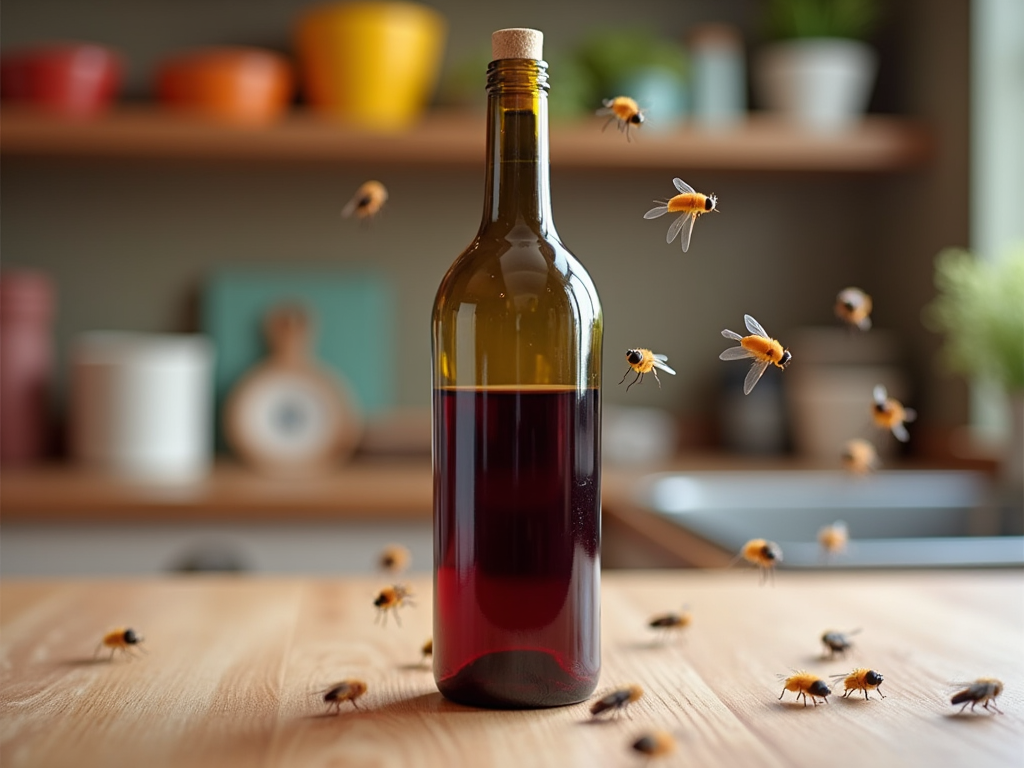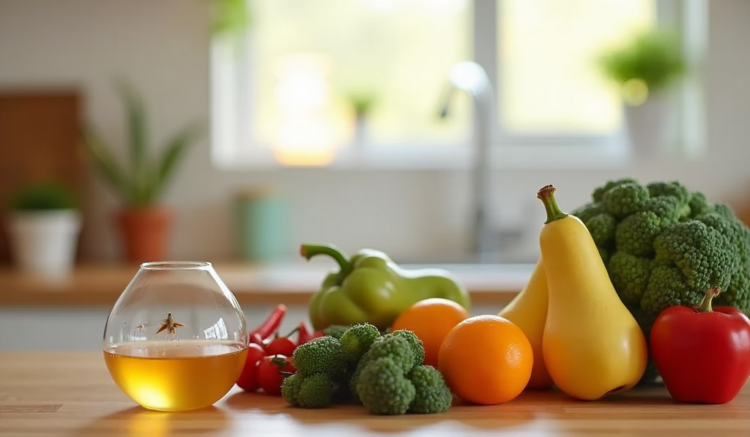Imagine preparing a delicious meal in your kitchen when suddenly, you notice tiny flies buzzing around, disrupting your cooking and bringing a feeling of disgust. Fruit flies, while small, can cause significant frustration with their persistent presence, especially in homes with a lot of fresh produce. These pests thrive in warm environments where moisture and organic matter are abundant, making them a common nuisance in kitchens and dining areas. The key to eliminating them lies not only in effective removal methods but also in understanding their behavior and preferred habitats. This article will guide you through various strategies for getting rid of fruit flies and preventing them from returning, ensuring your kitchen remains a clean and inviting space. Say goodbye to the buzzing annoyance and hello to a fruit-fly-free kitchen!
Understanding Fruit Flies

Fruit flies, scientifically known as Drosophila melanogaster, are small insects that typically measure about 1/8 inch in length. They are easily identifiable by their tan or yellowish bodies and bright red eyes, which add to their charm but do little to enhance your kitchen experience. These insects are notorious for their rapid reproduction; in optimal conditions, a female fruit fly can lay hundreds of eggs each day. Once the eggs hatch, the larvae begin feeding on fermenting fruit and other organic materials, rapidly escalating the population if not controlled. Understanding the lifecycle and behavior of fruit flies is crucial for effectively managing an infestation. Keeping a keen eye on potential breeding grounds can mean the difference between a minor annoyance and a full-blown infestation.
A fruit fly’s lifecycle comprises four stages: egg, larva, pupa, and adult. This rapid lifecycle allows them to multiply quickly, resulting in large populations within a matter of weeks. Typically, eggs are laid on the surface of ripe or decaying fruits, with the larvae emerging and consuming the surrounding material for nutrition. After several days in the larval stage, they enter the pupal stage where they transform into adult flies. The entire process can take as little as a week under ideal conditions. This quick lifecycle underscores the importance of early detection and intervention to prevent larger infestations.
Why Fruit Flies are Attracted to Your Home

It’s essential to identify what attracts these pesky flies to your living spaces. Generally, fruit flies are drawn to the following sources:
- Ripe or decaying fruits and vegetables that are left out in the open
- Spilled sugary or alcoholic liquids that provide a food source
- Dirty dishes left in the sink or on countertops
- Garbage cans that contain food waste and scraps
Additionally, warm and humid weather complements their breeding habits, making late summer and early fall prime times for infestations. A simple ecological imbalance in your kitchen can rapidly turn into a fruit fly paradise, which is why it’s vital to take preventive measures. Moreover, regular cleaning practices can drastically reduce the likelihood of these pests making themselves at home in your kitchen.
Effective Ways to Get Rid of Fruit Flies
Clean Your Kitchen Thoroughly
One of the most effective strategies for removing fruit flies invades your kitchen with a comprehensive cleaning regimen. A clean kitchen minimizes the chances of attracting these pesky critters. Here are some crucial cleaning tasks to focus on:
- Wipe down countertops and food preparation surfaces regularly to remove food residues.
- Empty and clean the pantry, discarding expired food and sanitizing shelves.
- Wash dishes promptly and avoid leaving dirty dishes in the sink.
- Ensure that trash bins are tightly sealed and emptied frequently to minimize odors.
With these cleaning steps, you significantly reduce the materials that attract fruit flies, disrupting their lifecycle and creating an inhospitable environment for breeding.
| Fruit Fly Favorite Foods | Preventive Measures |
|---|---|
| Ripe fruits | Store in fridge |
| Vegetables | Check for rot regularly |
| Fermented liquids | Seal tightly after use |
| Spilled sugar | Clean spills immediately |
Homemade Traps
In addition to cleaning, employing homemade traps can effectively capture and eliminate fruit flies. Consider the following popular methods:
- Apple Cider Vinegar Trap: Pour apple cider vinegar into a bowl and cover it with plastic wrap. Poke small holes in the wrap, so fruit flies can enter but cannot escape.
- Wine Trap: Leave a small amount of leftover wine in a bottle. The smell attracts the flies, who will drown in the liquid.
- Dish Soap Trap: Mix water and dish soap in a bowl. The soap reduces the surface tension, causing fruit flies to sink and drown.
Prevention Tips to Keep Fruit Flies Away
After successfully dealing with the current infestation, it’s important to take steps to prevent future occurrences. Here are several effective measures you can implement:
- Store ripe fruits in the refrigerator instead of leaving them out.
- Inspect fruits and vegetables before purchasing to avoid bringing infested produce home.
- Regularly clean kitchen drains, as they can harbor decaying organic matter.
- Keep compost bins covered if you utilize them, ensuring they’re well-maintained to avoid attracting pests.
By incorporating these practices into your routine, you can create an environment that discourages fruit flies from returning, making your kitchen a cleaner and more enjoyable space.
Conclusion
Getting rid of fruit flies may take some effort, but with thorough cleaning, effective traps, and ongoing preventive measures, you can reclaim your kitchen from these unwanted pests. It’s not only about eliminating the issue at hand but also taking steps to ensure that these pesky intruders don’t come back. Embracing cleanliness and vigilance in your kitchen practices will foster a maintained space that’s free of fruit flies. Being proactive rather than reactive is your best defense against future infestations. Welcome a fresh, fly-free kitchen where you can focus on preparing your favorite meals without interruptions!
Frequently Asked Questions
- How long do fruit flies live? Fruit flies typically live for about 30 days, but they can reproduce rapidly during this time.
- Can fruit flies infest my home year-round? Yes, fruit flies can be present throughout the year, especially in warm and humid conditions.
- Are fruit flies harmful? While fruit flies don’t pose significant health risks, they can contaminate food and be a nuisance.
- How do I know if I have a fruit fly infestation? Signs include seeing adult fruit flies, finding larvae in rotten fruit, and noticing an increased presence around food items.
- What other types of traps can I use? Besides apple cider vinegar and wine traps, you can also use sugar water or store-bought traps specifically designed for fruit flies.
